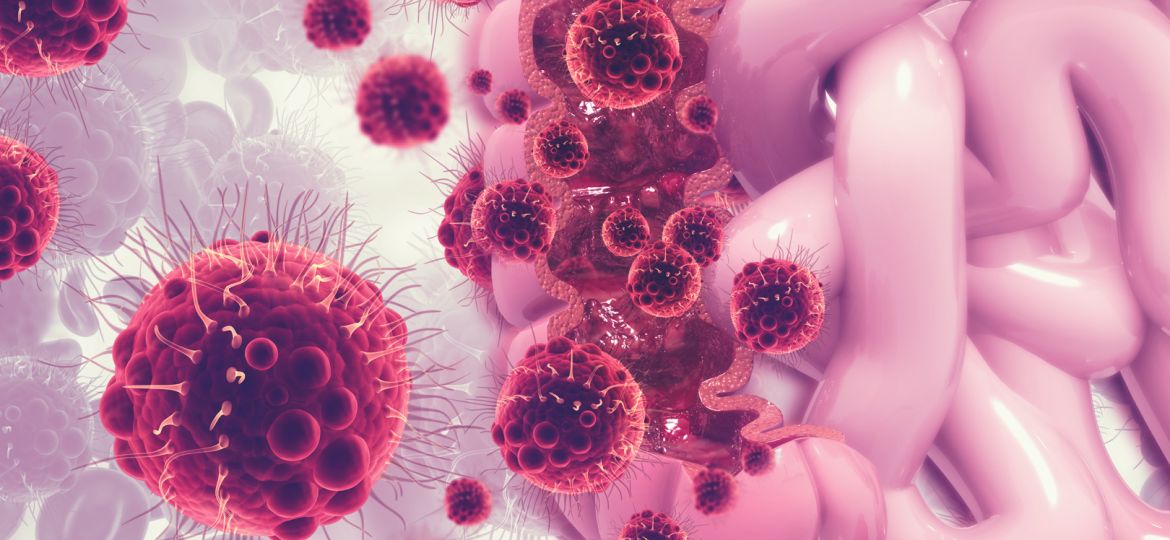
Colorectal cancer in Europe: the importance of Awareness, Detection, and early Prevention!
Colorectal cancer, or CRC, is a malignant neoplasm arising in the colon or rectum, making it the second most common cancer in Europe. Every year, approximately 500,000 citizens in Europe are diagnosed with colorectal cancer, leading to around 250,000 deaths.
The insidious nature of CRC lies in its potential to develop silently, with early stages often presenting minimal or no symptoms. Knowledge about CRC is paramount for recognizing risk factors, understanding symptoms, and appreciating the critical role of early detection.
CRC manifests itself through the uncontrolled growth of abnormal cells in the colon or rectum. It is crucial for individuals to be aware of potential risk factors, including age, family history, inflammatory bowel diseases, and certain genetic conditions. Recognizing the signs and symptoms, such as changes in bowel habits, blood in the stool, unexplained weight loss, and abdominal pain, empowers individuals to seek medical attention promptly.
Unfortunately, there are glaring disparities across Europe in the screening for colorectal cancer. Few countries, such as the Netherlands and Catalonia, have an active participation rate of 65%. Alarmingly, only 14% of European citizens within the recommended age group (50 – 74 years) have been invited for population-based screening.
In Portugal, this disease claims the lives of 13 individuals daily, with over 10,575 new cases diagnosed annually and 4809 deaths per year*.
We have approximately 80,000 active patients, and about 50% of the population is still unaware of the symptoms associated with colorectal cancer.
And that is why Europacolon Portugal stands at the forefront of the battle against colorectal cancer (CRC), serving as a beacon of support, information, and advocacy!
Our role involves disseminating crucial information about CRC to raise awareness and emphasize the importance of early detection and prevention.
The importance of CRC Screening
CRC screening is an indispensable component of cancer prevention. Given that CRC often progresses asymptomatically in its early stages, routine screening becomes a powerful tool for early detection and intervention.
EU citizens need to be well-informed about the various screening methods available, including colonoscopies and fecal occult blood tests (FOBT). ONCOSCREEN is taking a bold step in evolving these methods. This innovative project is introducing new, non-invasive screening methods, more accurate, user-friendly, highly sensitive, and cost-effective, promising to transform the approach to early detection of colorectal cancer in Europe.
Age-appropriate and regular screening, in accordance with healthcare professionals’ recommendations, significantly enhances the likelihood of identifying precancerous polyps or early-stage CRC.
Early detection allows for timely and effective treatment, ultimately improving patient outcomes. It is essential to understand that screening is not just for those with symptoms; it is a proactive measure for individuals considered at average risk and those with a family history of CRC!
Encouraging individuals to overcome potential barriers to screening, such as fear or discomfort, is an integral part of Europacolon Portugal’s mission.
In our project +INTESTINO, designed as a screening pilot with a particular focus on the Afro-descendant community, we learned that one of the main barriers to bowel cancer prevention is limited access to screening programs. Often, minority communities face specific challenges, such as lack of information, language barriers, lack of access to their family doctor, and transportation difficulties!
Also:
- Fear of having a colonoscopy and leaving the doctor´s office with negative news. But the truth is that the earlier the diagnosis is made, the greater the chance that there will be a treatment that stabilizes the disease!
- Lack of trust in the health system is another factor that prevents people from having a timely diagnosis and, therefore, more chances of treatment
- Shame, because the disease involves a part of the body that is rarely talked about
What Can People Do to Reduce their Risk of CRC?
Empowering individuals to take care of their health and adopt lifestyle modifications can significantly reduce their risk of CRC!
- Healthy Diet: Emphasize a diet rich in fruits, vegetables, and whole grains while limiting red and processed meats. A diet high in fat, fried foods, sugar, red and processed meats increase the likelihood of developing colorectal cancer
- Regular Exercise: Engage in at least 150 minutes of moderate-intensity exercise per week to promote overall health and reduce CRC risk.
- Maintain a Healthy Weight: Strive for a healthy weight through a balanced diet and regular physical activity, as obesity is a known risk factor for CRC.
- Limit Alcohol and Quit Smoking: Moderating alcohol intake and quitting smoking are crucial steps in lowering the risk of CRC. Alcohol consumption and tobacco use are significant risk factors!
- Screening Adherence: Adhere to recommended CRC screening guidelines, especially if there is a family history of the disease.
Remember, pay attention to the following symptoms:
- Persistent changes in bowel habits, such as the onset of constipation or diarrhea without apparent reason, and/or very dark stool
- Rectal/anal bleeding or blood mixed in the stools, without irritation, pain, or itching
- Feeling that the bowel does not completely empty
- Strong pain, abdominal discomfort
- Unexplained fatigue and weight loss
Europacolon Portugal’s has an unwavering commitment to CRC awareness and prevention. We believe that by understanding CRC, advocating for regular screening, and adopting lifestyle changes, individuals can actively contribute to reducing the burden of colorectal cancer, fostering a healthier future for us all!
By emphasizing the benefits of screening and addressing concerns, we aim to increase screening adherence across Europe, reducing the burden of advanced-stage CRC cases.
Recognizing the signs is crucial for early detection.
Stay alert!
*Global Cancer Observatory (GLOBOCAN) data from 2022
